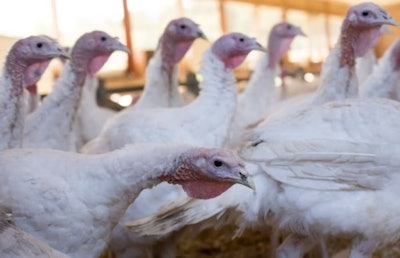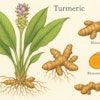
Avian metapneumovirus (aMPV) has caused major losses for poultry producers over the past year, yet growers who have lost birds to the disease are not eligible for indemnity payments from the United States Department of Agriculture (USDA).
John Zimmerman, immediate past chairman of the National Turkey Federation, explained to members of the U.S. Senate Committee for Agriculture, Nutrition and Forestry why he thinks they should be.
Zimmerman told committee members during a February 27 hearing that while highly pathogenic avian influenza (HPAI) has gained more attention, he said aMPV is “more subtle but equally impactful.”
Zimmerman, also a Minnesota turkey producer, explained that aMPV can significantly reduce egg sets of breeding stock that produce the next generations of turkeys. It also can cause severe prolonged mortality in commercial poultry turkey flocks.
“While HPAI grabs headlines for its effect on egg and milk prices, aMPV has also killed millions of turkeys,” Zimmerman said. “Together, these two respiratory viruses have exponentially increased volatility, supply shortages and market uncertainty. Back in Minnesota, this one-two punch has caused many farmers to quit raising turkeys, with several others on the brink of shutting down.”
To illustrate the devastation aMPV can cause, Zimmerman said within his own operation, he has had turkey flocks experience 30% mortality within just a matter of days.
Adding to affected producers’ problems is that some have struggled to obtain credit from their banks after suffering such losses. But those losses can be lessened if aMPV-affected producers were eligible for indemnity payments.
“We urge the committee to make aMPV an eligible disease under the USDA’s Livestock Indemnity Program (LIP). This would assist growers in mitigating economic loss and it will go a long way to assist poultry producers, who are being hit hard, stay on their farms producing the most abundant food supply in the world,” said Zimmerman.
Vaccines for aMPV
Also during the hearing, Zimmerman acknowledged his appreciation to the committee’s leaders, Sen. John Boozman, R-Arkansas, and Amy Klobuchar, D-Minnesota, for “leading the charge in supporting the importation of the much-needed modified-live vaccine for aMPV,” which were approved in late 2024 and has now reached some Minnesota farmers.
However, Zimmerman was concerned about how long it took to get to that point.
“It's important to acknowledge the industry’s frustrations with USDA’s review process of an imported modified-live vaccine,” he said. “I appreciate the importance of ensuring the safety of a vaccine and that the aMPV vaccine was the first of its kind to be approved. However, when an entire industry is at significant risk it should take a matter of months – not a year – for a widely used and well-established global vaccine to be imported and available for use. I would encourage the committee to use your experience in evaluating USDA’s review process to ensure a faster, more efficient response to future animal disease outbreaks.”

















